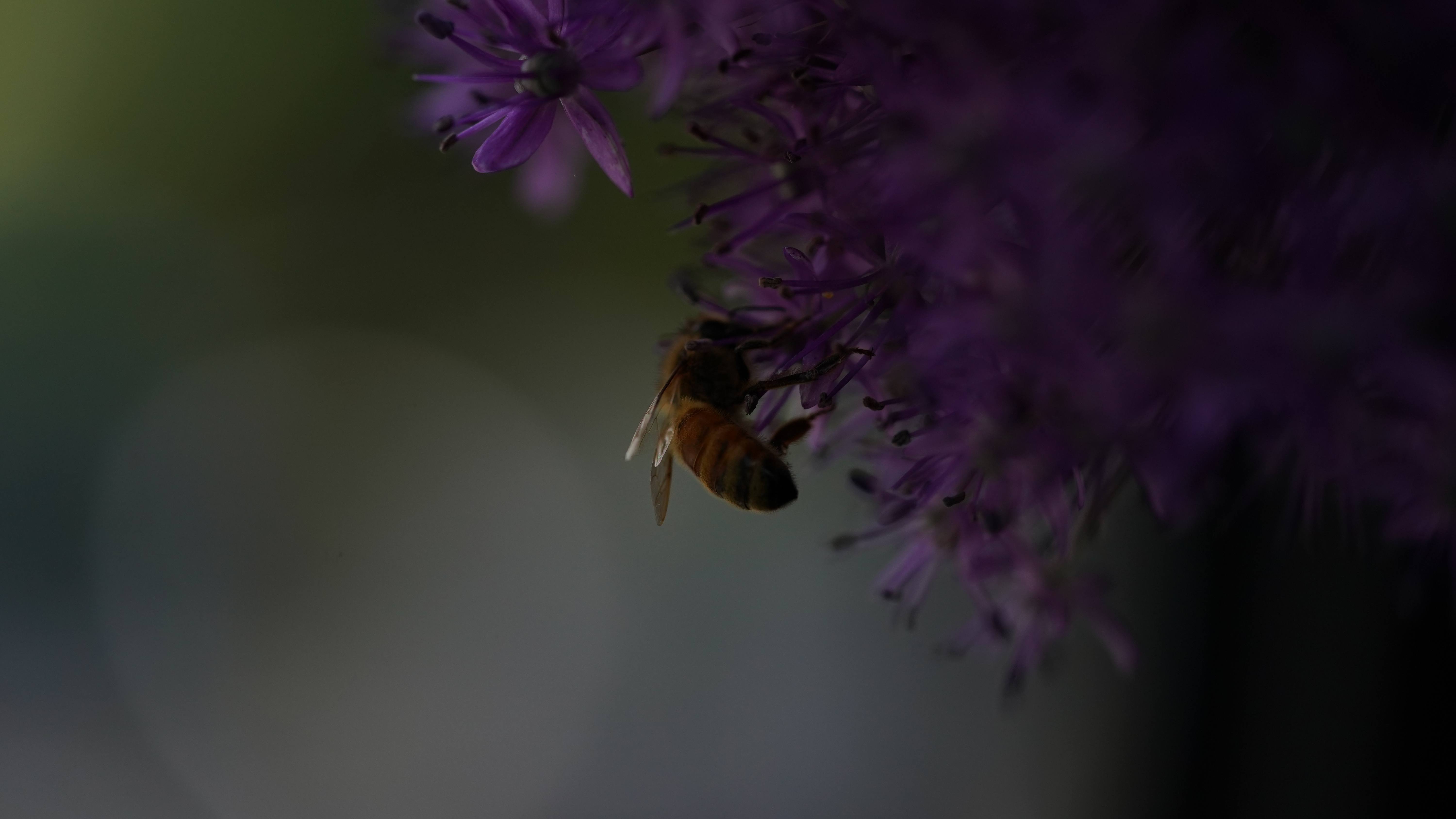This site uses cookies – Learn more.
The Bees of Madison Square Park
The Bees of Madison Square Park
Over the past decade, more information has been shared regarding the importance of pollinators to our ecological conservation, biodiversity, and food security. While we’ve learned to appreciate pollinators in new ways, native pollinators continue to face challenges and competition in their natural habitat.
Honey bees are crucial in pollinating crops as part of domestic agriculture. Unfortunately, these bees are not native to the United States and can threaten the health of our native bees. Honey bees have the ability to fly further than many native species, allowing them to access a wider range of pollen than native species. This puts native species at a severe disadvantage when hives are placed near local populations as the sheer quantities of honey bees outcompete native bees for pollen. Furthermore, poor beekeeping practices can further threaten native bees when honey bee hives contain mites or disease. These pathogens are then transferred rapidly between species as bees go from flower to flower.
Native bees provide critical ecosystem services, and they are in serious decline. When you think of bees, you might imagine a honey hive up in a tree. Surprisingly, this is not the habit of most of the 415 native species of bee in New York State. Most often, native bees are ground nesters – literally living in holes in the ground – or cavity nesters – living in the stems of plants. If you’ve ever wondered why we leave the leaves or wait to prune the stems of faded perennials in Madison Square Park, it’s all for the native bees! Native bees are often solitary dwellers and they will rarely sting, unlike honey bees.
Since 2021 the Madison Square Park Conservancy has partnered with Sara Kornbluth, a bee specialist at The Museum of Natural History, on a native bee survey of the park. Monitoring native bee species at the Park helps us understand what plants to incorporate into the gardens and how we can better manage the park land and soil to protect our threatened pollinators.
According to the survey, the park is home to 31 different bee species! Some of them are rare in this environment, reflected in the population observed. Ptilothrix bombiformis, the Hibiscus Turret Bee, a specialist of plants in the Hibiscus genus and a ground nester. Andrena hippotes, or the Mining Bee, is rare in the city because it tends to be particular about the soil it nests in, however 2 were spotted in the park! Megachile frigida, the Leafcutter Bee, also calls MSP home and uses the cavities of spent perennial stems to nest in. It’s amazing to think of how much diversity can thrive in a small urban space given the proper care.
It’s extremely rewarding to see how our sustainable practices help support native pollinators and help preserve biodiversity within local bee populations. As New Yorkers, we are often accustomed to seeing pristine landscapes and we come to parks as places of constant recreation. Sometimes messy landscapes and allowing soil to rest help us in the long term by supporting the wild creatures that naturally pollinate the landscape. Leaving stems, planting native plants, or even leaving decaying wood for nesting space make a huge difference. Planting flowers on roofs instead of installing honey bee hives can make a significant difference for our threatened bees. There is so much each individual can do to help support our bee friends and restore ecological balance in an urban environment.









